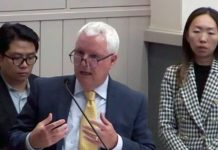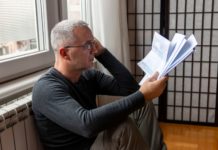The bill would direct the Centers for Medicare and Medicaid Services (CMS) to study barriers to accessing non-drug alternatives to opioids to manage chronic and acute pain within the Medicare program, and provide a report to Congress on any existing barriers. Alternative treatments include acupuncture, physical therapy, occupational therapy, medical devices, and others. It also includes a directive for the Department of Health and Human Services (HHS) to develop a toolkit to educate beneficiaries about non-drug opioid alternatives. The bill also directs CMS to examine ways for beneficiaries to familiarize themselves with coverage for psychologist services, and requests a study from the Government Accountability Office (GAO) on the viability of mental and behavioral health services in the Medicare Program. Rep. Chu released the following statement:
“The opioid epidemic has plagued every state and community in our country, impacting Americans both young and old. Individuals aged 65 and older are seeing radical increases in opioid-related hospital stays, including in my home state of California. And this crisis is especially acute for the non-elderly Medicare population. For instance, in 2015, nonelderly Medicare beneficiaries, or those who qualify on the basis of disability, had opioid utilization rates more than twice that of elderly beneficiaries. And so, to combat it, we need a strategy that is equally broad and targeted at all ages and means. That is what this bill will help us do.
“I particularly want to thank Rep. Walorski for working with me on language that would direct CMS to study barriers to patient access to non-drug alternatives for opioids in chronic care settings. Studies conducted by the NIH have concluded that alternative treatments like acupuncture can be effective in treating conditions like chronic pain without the dangerous risk of addiction. And I have heard firsthand what a difference acupuncture can make in the lives of patients. I remember very clearly when I heard the testimony of a woman who had severe back pain but did not want invasive surgery, and risk possible addiction to morphine. Instead, she sought acupuncture, and it worked for her, and she avoided the risks associated with surgery and certain pain medications. We also know access to physical and occupational therapy helps alleviate pain and eliminates the need for an opioid prescription. By asking CMS to examine where barriers to these alternatives exist, we can open the door to more treatment options for beneficiaries.
“I’m also proud that this bill includes a provision I authored with the Rep. Kristi Noem (ND), to address the need for more psychologists in the Medicare program. This bill would direct the Center for Medicare and Medicaid Innovation to examine ways for beneficiaries to familiarize themselves with coverage for psychologist services, and requests a study from the Government Accountability Office on the viability of mental and behavioral health services in the Medicare Program. As one of only two psychologists in Congress, I firmly believe that expanding access to psychologist services in Medicare is one of the most important things we can do to improve the mental health of our senior population.”




















.png)







